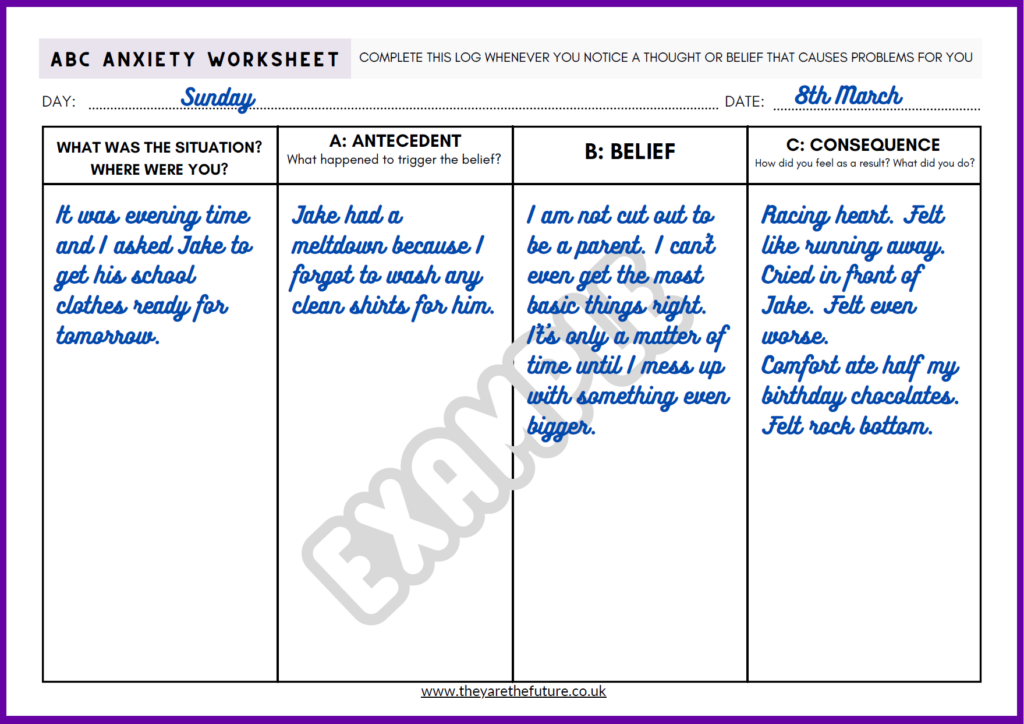Living with anxiety can be overwhelming and challenging. It can affect every aspect of your life, from your relationships to your work. However, there are effective tools and techniques, such as cognitive behavioral therapy (CBT), that can help manage and reduce anxiety symptoms. One of the key components of CBT is the use of cognitive behavioral worksheets.
Cognitive behavioral worksheets are tools that help individuals identify and challenge negative thought patterns and behaviors that contribute to anxiety. These worksheets provide a structured way to address and reframe irrational beliefs and fears, ultimately helping individuals develop healthier coping mechanisms and reduce anxiety levels.
Cognitive Behavioral Worksheets for Anxiety
One common type of cognitive behavioral worksheet for anxiety is the thought record worksheet. This worksheet prompts individuals to identify their anxious thoughts, rate the intensity of their anxiety, and challenge the validity of these thoughts. By examining and disputing irrational beliefs, individuals can begin to shift their perspective and reduce anxiety symptoms.
Another helpful cognitive behavioral worksheet for anxiety is the exposure hierarchy worksheet. This worksheet helps individuals gradually confront their fears and anxieties in a structured and controlled manner. By breaking down anxiety-provoking situations into smaller, manageable steps, individuals can build confidence and resilience in facing their fears.
In addition to thought record and exposure hierarchy worksheets, there are also worksheets that focus on relaxation techniques and stress management strategies. These worksheets help individuals develop skills to calm their minds and bodies, reducing overall anxiety levels and promoting a sense of well-being.
It’s important to note that cognitive behavioral worksheets are most effective when used in conjunction with guidance from a trained therapist. A therapist can provide support, feedback, and personalized strategies to help individuals navigate their anxiety and make meaningful progress towards their mental health goals.
In conclusion, cognitive behavioral worksheets are valuable tools for managing anxiety and improving overall well-being. By challenging negative thought patterns, confronting fears, and learning relaxation techniques, individuals can develop the skills and resilience needed to effectively cope with anxiety. If you’re struggling with anxiety, consider incorporating cognitive behavioral worksheets into your self-care routine and seeking support from a mental health professional.
